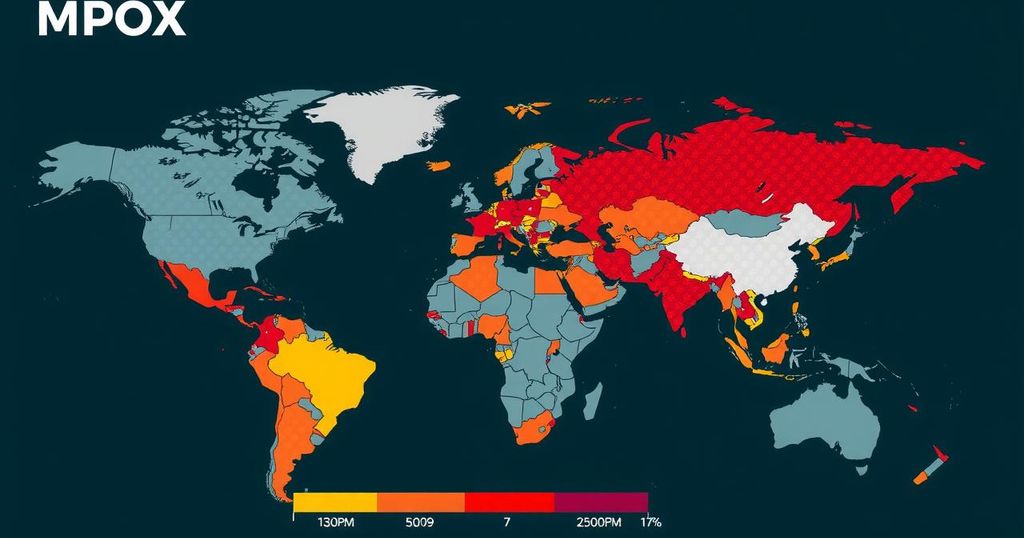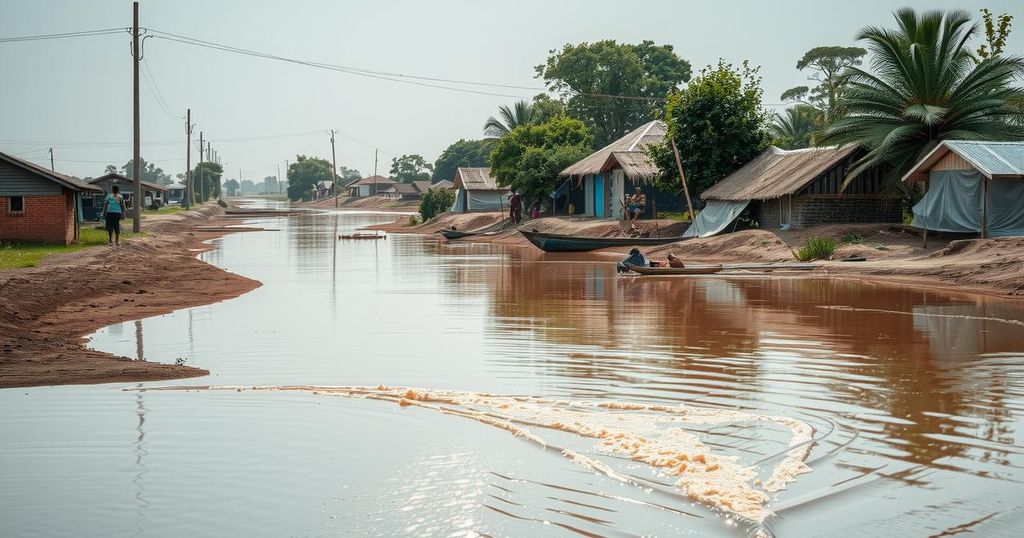Understanding Mpox: Symptoms, Transmission, and Current Outbreaks in Africa
Mpox, previously known as monkeypox, is a contagious viral disease that has become a public health emergency in Africa, particularly affecting the Democratic Republic of Congo. Symptoms start with fever and include painful rashes. The disease is transmitted through close contact, with serious implications for vulnerable populations. Recent outbreaks have been reported in countries not typically affected, raising global health concerns about the contagion’s spread and severity.
Mpox, formerly known as monkeypox, is a viral disease declared a public health emergency of international concern by the World Health Organization (WHO), particularly due to outbreaks occurring in parts of Africa. It has resulted in significant fatalities, particularly in the Democratic Republic of Congo, where at least 450 individuals have died due to this highly contagious disease. Though mpox typically originates from animal transmission, it now spreads between humans, presenting a serious health risk to vulnerable populations, especially young children.
The initial symptoms of mpox encompass fever, headaches, lymph node swelling, back pain, and muscle aches. After the fever subsides, an itchy or painful rash may emerge, beginning on the face and subsequently affecting other body areas, notably the palms and soles. The rash undergoes various stages, eventually forming scabs that may leave scars. The duration of the infection typically ranges from 14 to 21 days, but in severe cases, notably among children, it can result in death. The African Centers for Disease Control and Prevention reported over 14,500 infections since the start of 2024, marking a substantial increase in cases compared to previous years.
Mpox cases predominantly occur in rural locations within the tropical rainforests of West and Central Africa, particularly in the Democratic Republic of Congo, which has been experiencing outbreaks for decades. However, the disease has recently been observed in countries like Burundi, Rwanda, Uganda, and Kenya, where it is not traditionally endemic. There are two main clades of the virus: Clade 1, which is often more severe, and Clade 2, which has been responsible for the milder outbreaks. Importantly, experts are concerned about the emergence of the Clade 1b variant, which appears to spread more easily and cause more severe illness among those infected.
Mpox transmits through close contact with infected individuals via skin-to-skin contact, respiratory droplets, or through contaminated objects and environments. Particularly, sexual contact serves as a primary route for transmission in current outbreaks. Vulnerable individuals, including healthcare workers and family members, are at increased risk, as are young children whose developing immune systems leave them particularly defenseless. In response to the ongoing crisis, the WHO emphasizes the significance of preventing close interactions with infected individuals and advocating for proper hygiene practices.
Vaccines for mpox exist but are limited in availability, typically reserved for those at high risk or those who have had close contact with infected individuals. The WHO is advocating for expanded access to vaccines, stressing the urgent need for coordinated efforts among governments to ensure sufficient medical supplies and support for affected communities.
Mpox is a viral disease linked to the same family as smallpox, initially transmitted from animals to humans but increasingly spreading through human-to-human contact. This transformation has prompted significant public health concerns and led to declarations of emergencies by health organizations. The disease has historically plagued certain regions in Africa, particularly in rural areas where healthcare access is limited and cases go unreported, contributing to high mortality rates. The emergence of new strains, notably Clade 1b, raises alarms regarding the potential for increased transmission and severity of disease, necessitating immediate intervention and public awareness efforts.
In summary, mpox represents a crucial public health issue, particularly within vulnerable communities in Africa, where its transmission has escalated alarmingly. The disease’s symptoms warrant attention, given the high mortality rates among affected populations, notably young children, and the implications of emerging clades that may exacerbate the situation. Coordinated global efforts are essential to mitigate the spread of mpox, warranting enhanced surveillance, vaccine access, and public health initiatives aimed at education and prevention.
Original Source: www.bbc.com




Post Comment